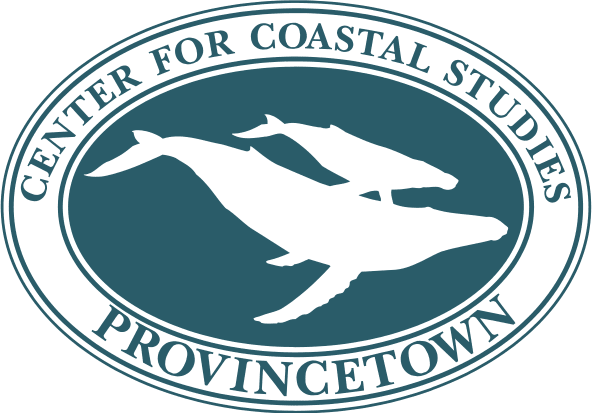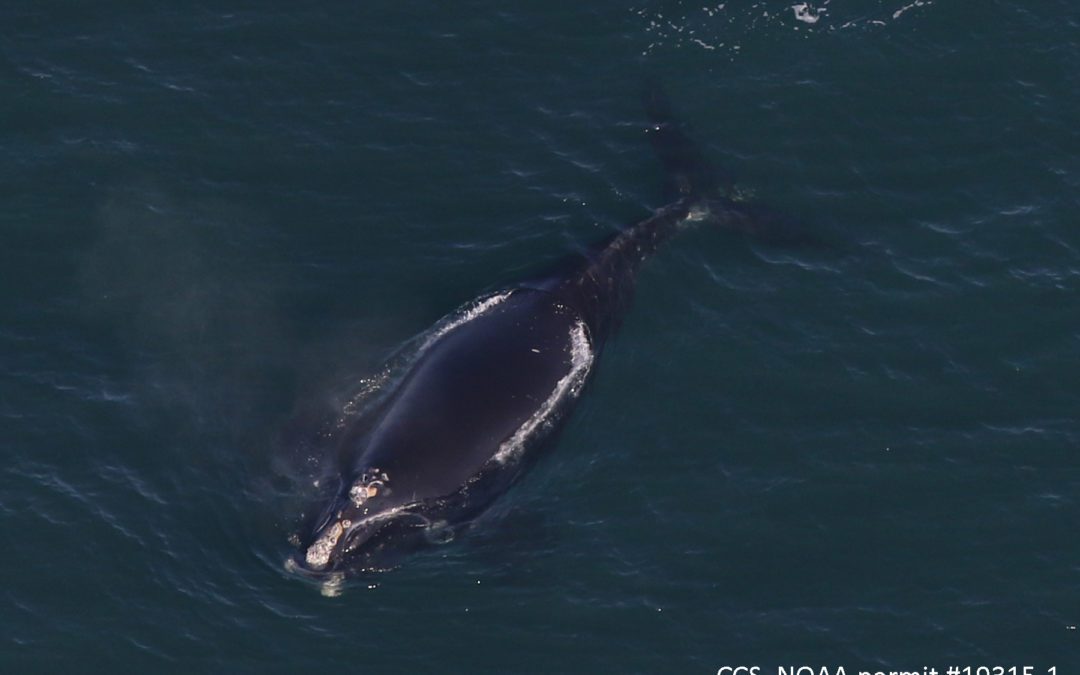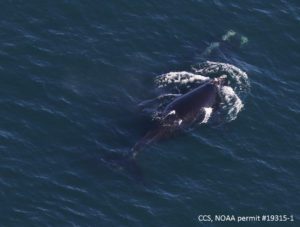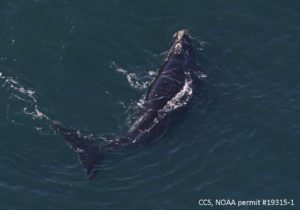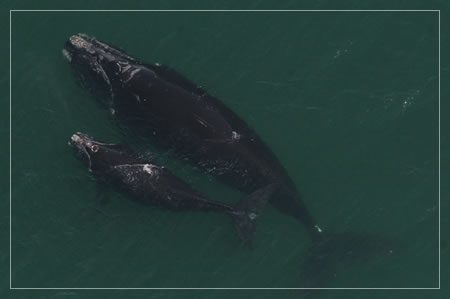March 4, 2021
Yesterday the aerial surveillance team from the Center for Coastal Studies (CCS) Right Whale Ecology Program documented a North Atlantic right whale mother/calf pair in Cape Cod Bay, the first of the 2021 season.
- Right whale #3520, Millipede, with her calf. Cape Cod Bay, 3/3/21. CCS, NOAA permit #19315-1. Click to view larger image.
- Calf of right whale #3520, Millipede. Cape Cod Bay, 3/3/21. CCS, NOAA permit #19315-1. Click to view larger image.
They have been identified as Right Whale Catalog #3520, named Millipede, and her 3-month old calf. The pair was first observed by Florida Fish & Wildlife Conservation Commission on December 6, 2020 off Vilano Beach, Florida. Their last known sighting in the Southeastern US (SEUS) was by the FWRI team on February 3, 2021 off Little Talbot Island, Florida.
“We weren’t expecting to sight a mom-calf pair this early in our season since we typically first see them arrive in late March/early April,” said CCS right whale researcher and aerial observer, Brigid McKenna. “Millipede is a common visitor to our waters, and in fact our most recent sighting of her prior to this was last March when she was presumably pregnant with this calf,” McKenna continued. “Her 2021 calf appeared to be quite healthy and independent – it spent more than 40 minutes far from its mother, which is something we do not see often at this age.”
The back story of this calf is one of resilience and survival in a species virtually eradicated by human activity. The critically endangered right whale was hunted to near extinction, and those remaining – now just an estimated 356 individuals – are in constant risk from ship strikes and entanglement in fishing gear.
Millipede was born in 2005 to #2040 (Naevus), the daughter of #1140 (Wart). Wart was entangled in fishing gear for at least three years before being disentangled by the CCS Marine Animal Entanglement Response (MAER) team in 2010. In January 2013 Wart was sighted with a days-old calf just off Pilgrim Nuclear Power Plant in Cape Cod Bay, a rare birth outside the calving grounds of the Southeastern US.
Naevus, Wart’s 1990 calf, was documented with an entanglement in August 2010 in the Gulf of Saint Lawrence. She was spotted again a month later, gear-free.
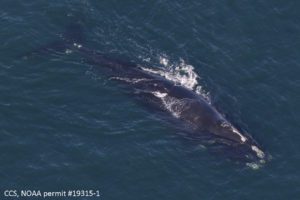
Right whale #3520, Millipede. Note the propeller scars on her right side.
Cape Cod Bay, 3/3/21. CCS, NOAA permit #19315-1
Millipede herself survived a vessel strike when she was less than a year old, and is named for the scars on her right flank left by the propeller marks (pictured). Her first calf, born in 2013, was not resighted after leaving the SEUS, and it’s unlikely that it survived the journey north.
“By any accounting, this little whale has already beaten the odds,” said Dr. Charles “Stormy” Mayo, Director of the CCS Right Whale Ecology Program. “To reach Cape Cod Bay, Millipede and her calf, the hope for the future of this critically endangered species, had to complete a perilous 1200-mile journey through busy coastal waters. They are now in a small bay that is relatively safe from threats, but in weeks or days they will leave the protected confines of the bay and continue their travels north in more risky waters.”
Sadly, the newborn whale will grow up in an ocean where threats appear to be increasing. Since 2017 there have been 34 recorded right whale deaths, most as a result of entanglement or ship strike; 14 more are known to be entangled or injured. The actual numbers of individuals impacted is likely substantially higher. Of the 17 documented North Atlantic right whale calves born this season, three are already known or assumed to have died, one of which was struck and killed by a sport fishing boat off Florida; it’s mother was gravely injured in the same incident.
The sighting of the calf came on a day when the CCS right whale aerial survey team spotted 57 right whales in Cape Cod Bay, bringing the total number of individuals spotted so far this season to over 100.
“The large number of right whales that have entered Cape Cod Bay, combined with the sighting of the first mother/calf pair of the year, demonstrates what we have seen over the last several decades, the increasing importance of Cape Cod Bay as a feeding and nursery ground for the last right whales,” Mayo noted.
Boaters, kayakers, paddle-boarders, swimmers and light aircraft and drone pilots are reminded that it is illegal to approach a North Atlantic right within 500 yards (1500 feet) without a Federal Research Permit. However, the whales often feed very close to shore, offering watchers on the beach unbeatable views of one of the rarest of the marine mammals.
CCS right whale research and response operations are conducted in partnership with the Massachusetts Division of Marine Fisheries and NOAA under federal permits issued by the National Marine Fisheries Service. Support also comes from the Massachusetts Environmental Trust and contributions from other foundations, businesses and CCS supporters through the Center’s Right Whale Emergency Initiative.
Click here to contribute to CCS’ right whale protection and conservation efforts.
